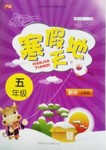题目内容
The other day at the supermarket, I saw a naughty child of about six crying loudly, falling to the floor and refusing to move. All the while the troubled mother was trying to persuade him to behave well but failed. A little smack (掴打) on his bottom would have done the job, I thought.
Teenagers also cause discipline problems. As a teacher I had a 16-year-old student who had fallen in love with a waiter at a fast-food restaurant. In fact, she had left home to stay with him. So we decided to put her in the school hostel. She refused. When she heard her mother begging her to stay in the hostel she turned round and said: “Why don’t you stay in the hostel if you like it so much?”
My palms were itching to slap her for being so rude but the poor mother continued to cajole her, hoping that gentle persuasion would work wonders. It did not. The last I heard, she had run away from home again.
The list goes on and on. Could it be that today’s parents are softer and believe that they must not rod (棍棒惩罚) their children for fear of the bad result? Or do they actually believe that the children will get rid of the bad habits and behave well naturally as they grow older? I beg to disagree. I believe it is the parents’ duty to discipline the children even at a young age.
My children who are now adults will prove the fact that I used the rod when I thought it necessary. Later when they went abroad, they related to their British university friends on how they were disciplined. Their friends abroad were filled with horror and told my daughter that I could be charged for child abuse (虐待). However, my daughter paid me the greatest compliment when she told them that she would not be where she was today if not for my strict discipline.
1. According to the passage, the author would probably _______.
A. beat the children every day B. punish the children when necessary
C. 1eave the children as they are D. treat the children in a softer way
2.The underlined word “to cajole” (in Paragraph 3) probably means _______.
A. to persuade B. to scold C. to forgive D. to punish
3.Which of the following statements is TRUE according to the passage?
A. The naughty boy’s mother hit him on the bottom at last.
B. The teenager’s mother lived together with her daughter in the school then.
C. The author was charged for child abuse by her daughter’s friends abroad.
D. The author’s daughter was very thankful for her parent’s strict discipline.
4. Which of the following can be the best title of this passage?
A. Respect Parents B. Spoil Kids C. Value Discipline D. Protect Kids
1.B
2.A
3.D
4.C
【解析】略

 寒假天地重庆出版社系列答案
寒假天地重庆出版社系列答案